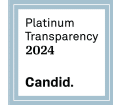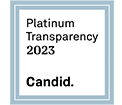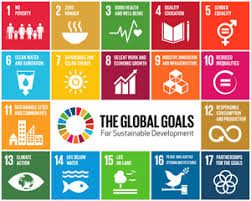In September 2015, the UN member states agreed to a set of 17 Sustainable Development Goals (SDGs), which represent the global agenda for equitable, socially inclusive, and environmentally sustainable economic development through 2030.
Since their launch, companies across many sectors have been trying to figure out how to align the SDGs with their sustainability programs and in some cases, integrate them into their core strategy and operations. Critics argue this has provided yet another opportunity for companies to ‘greenwash’ or, as a recent EthicalCorp article put it, ‘SDG wash’.
However, the SDGs represent a unique opportunity to engage companies in the global effort to improve human development. Companies paid less attention to the SDGs’ predecessor, the Millennium Development Goals, due in part to the fact that the SDGs specifically call on the private sector to partner with government to achieve the goals.
If any industry can claim to be advancing the SDGs merely by virtue of its core offering, it should be the renewable energy sector. Not only does renewable energy address SDG 7 on access to affordable, reliable, and sustainable energy; and SDG 13, on urgent action to combat climate change, it can be argued that access to energy for the 1.1 billion people who lack it, is a fundamental requirement for achieving other SDGs, including ending poverty (SDG 1), eliminating hunger (SDG 2), advancing health and well-being (SDG 3), providing quality education (SDG 4), providing decent work (SDG 8) and promoting sustainable cities and communities (SDG 11).
At the same time, as we’ve documented here on our blog, renewable energy projects can have local impacts, that, as with any large-scale development project, need to be managed. Renewables projects do not always gain the buy-in of local communities and in some cases, have created conflicts around land rights, Indigenous Peoples’ rights, and environmental impacts.
The Business and Human Rights Resource Centre, in research conducted last year, found that while two thirds of renewable energy companies have human rights policies in place, less than half refer to international standards, and only 10 percent reference the right to Free, Prior and Informed Consent for Indigenous Peoples. Half of the wind power companies surveyed also lacked a commitment to community consultation.
The Centre has received close to 100 complaints from communities and civil society groups about renewables projects since 2010. Whilst this is a relatively small number, it is likely to escalate as clean energy projects that require large amounts of land scale up to meet global climate goals.
Renewable energy thus has two big opportunities when it comes to the SDGs: one is to ensure that human rights considerations are fully integrated into operational planning and decision-making to ensure no negative impacts and to be able to achieve a social license to operate. The second is to support the achievement of SDG 7 on access to affordable, reliable and sustainable energy, and in doing so, enable many other SDGs to be realized.
To create a shared understanding of how the renewables sector can most effectively contribute to the SDGs, we have partnered with the Business and Human Rights Resource Centre, the Columbia Center on Sustainable Investment (CCSI) and the UN Sustainable Development Solutions Network (SDSN) to develop a mapping document for the industry. The document will trace the many points of intersection between renewable energy and the SDGs, including ways in which the renewable sector can contribute toward the realization of the SDGs, the risks renewable energy operations can pose for sustainable development and the realization of human rights, and the implications of the SDGs for the industry’s future operations. Special attention will be paid to the interconnections of the human rights framework with the SDGs. A draft will be published in September of this year at a launch event hosted by CCSI during Climate Week in New York City.
For more information, please contact: [email protected]



